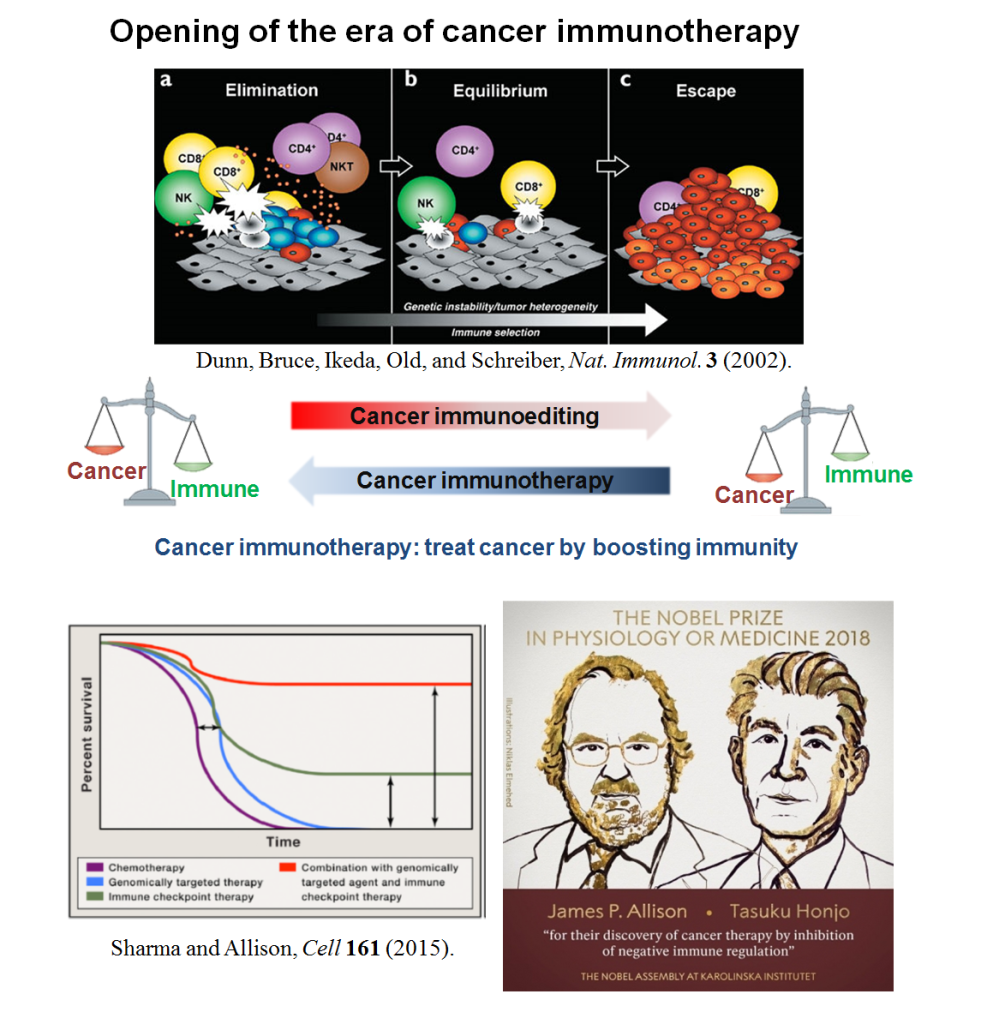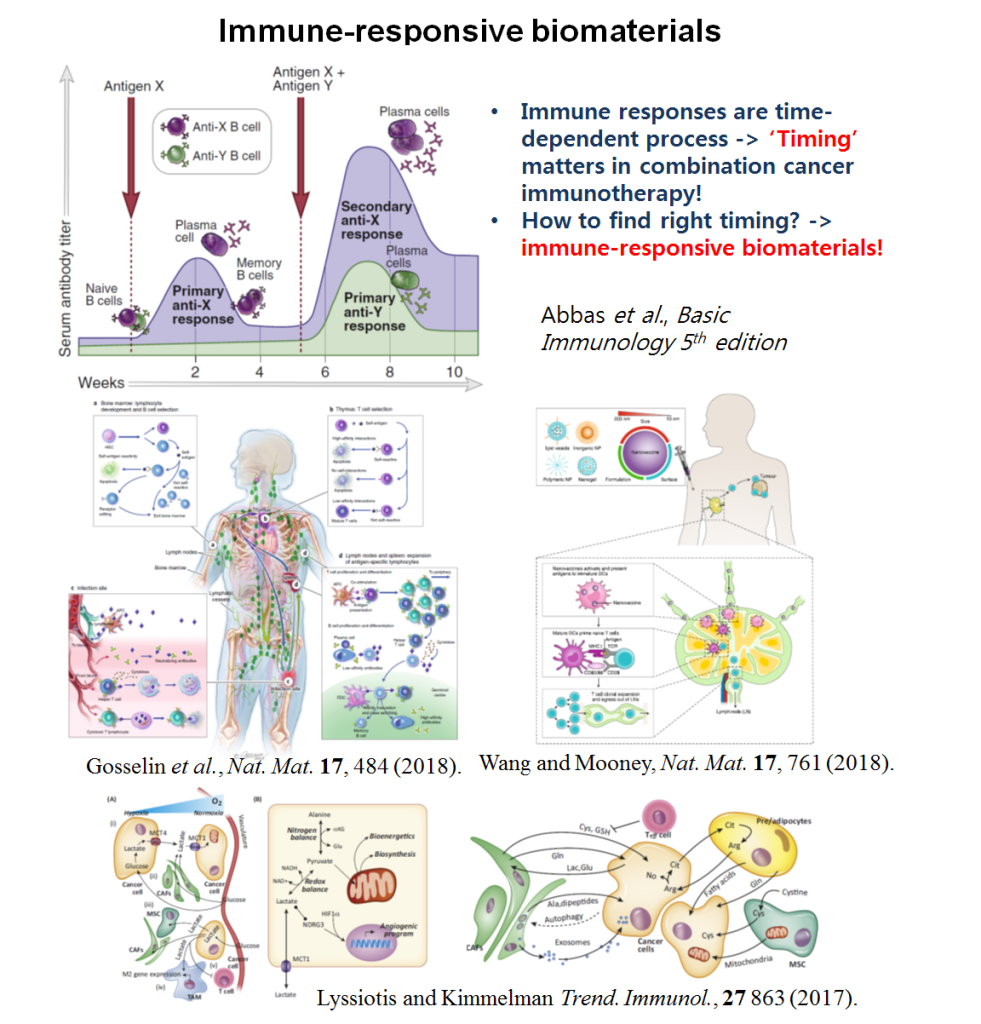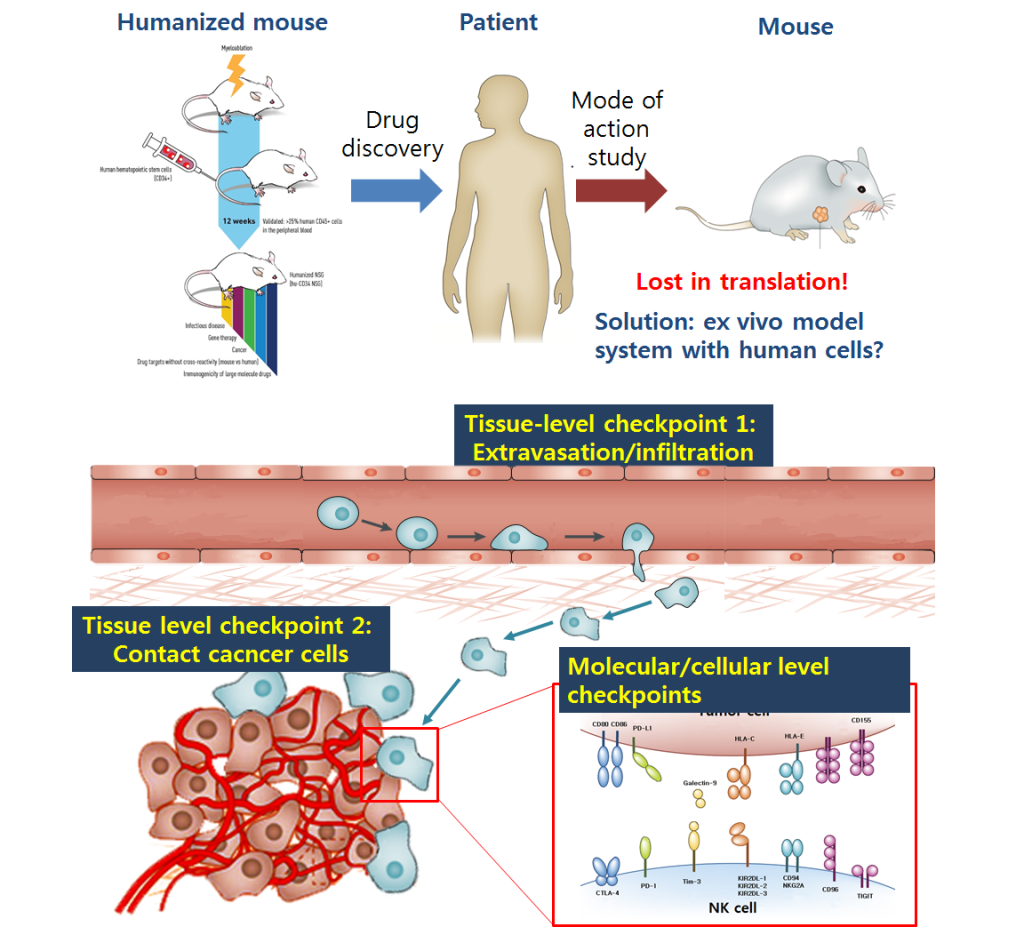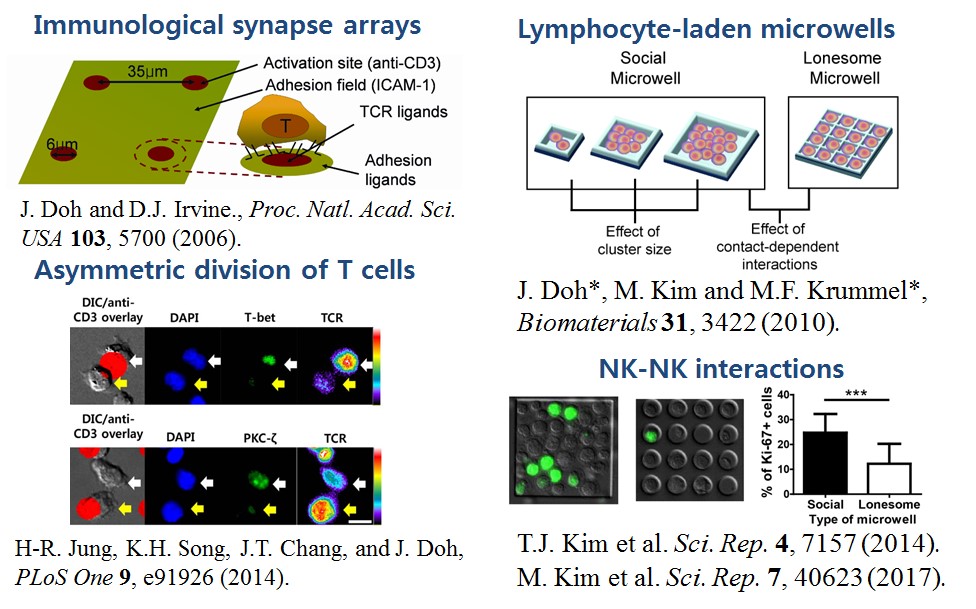Our Research Inerests

1
Background
We strive to solve fundamental problems in immunology and immunotherapy by developing novel biomaterials. In particular, we are interested in cancer immunohterapy, a groundbreaking approach to treat cancer.
Cancer immunotherapy is a novel method to treat cancer by harnessing the power of immunity. In contrast to conventional cancer therapy directly targeting cancer cells, cancer immunotherapy indirectly target cancer by boosting immune responses against cancer cells. In addition to this mechanistic differences, cancer immunotherapy is qualitatively different in therapeutic efficacy in that it can significantly improve the survival of the patients, and even completely cure patients with refractory cancer. With this remarkable achievement, two pioneers in cancer immunotherapy, Drs. James Allison and Tasuku Honjo, received Nobel Prize in Physiology and Medicine in 2018.
2
Smart Biomaterials
Development of smart biomaterials for the spatio-temporal control of drug delivery.
In spite of this great success, cancer immunotherapy needs to be substantially improved because still only fractions of patients are responding to the therapy as a monotherapy. To overcome this limitation, people try ‘combination’, but the problem is much more complicated than simple addition of many different therapeutics because immune responses changes over time.


3
Ex vivo models
Development of ex vivo model systems for the assessment of cancer immunotherapeutics.
There is no good preclinical model for evaluation of immunotherapeutics. To overcome this limitation, we are developing various ex vivo model systems recapitulating complex immune-cancer interactions or tumor-immune microenvironments.
4
Lymphocyte Biology
Study of fundamental lymphocyte biology using various microfabricated platforms.
Rapid motility and dynamic cell-cell interactions are essential for immune cells to exert their functions under complex microenvironments. Our lab study fundamental immune cell biology by combining microfabrication and dynamic imaging. Immune cells form synapses for their interactions with specific partners. We have been developing microfabrication-based platforms to dissect the roles of synapse-mediated immune cell interactions.

